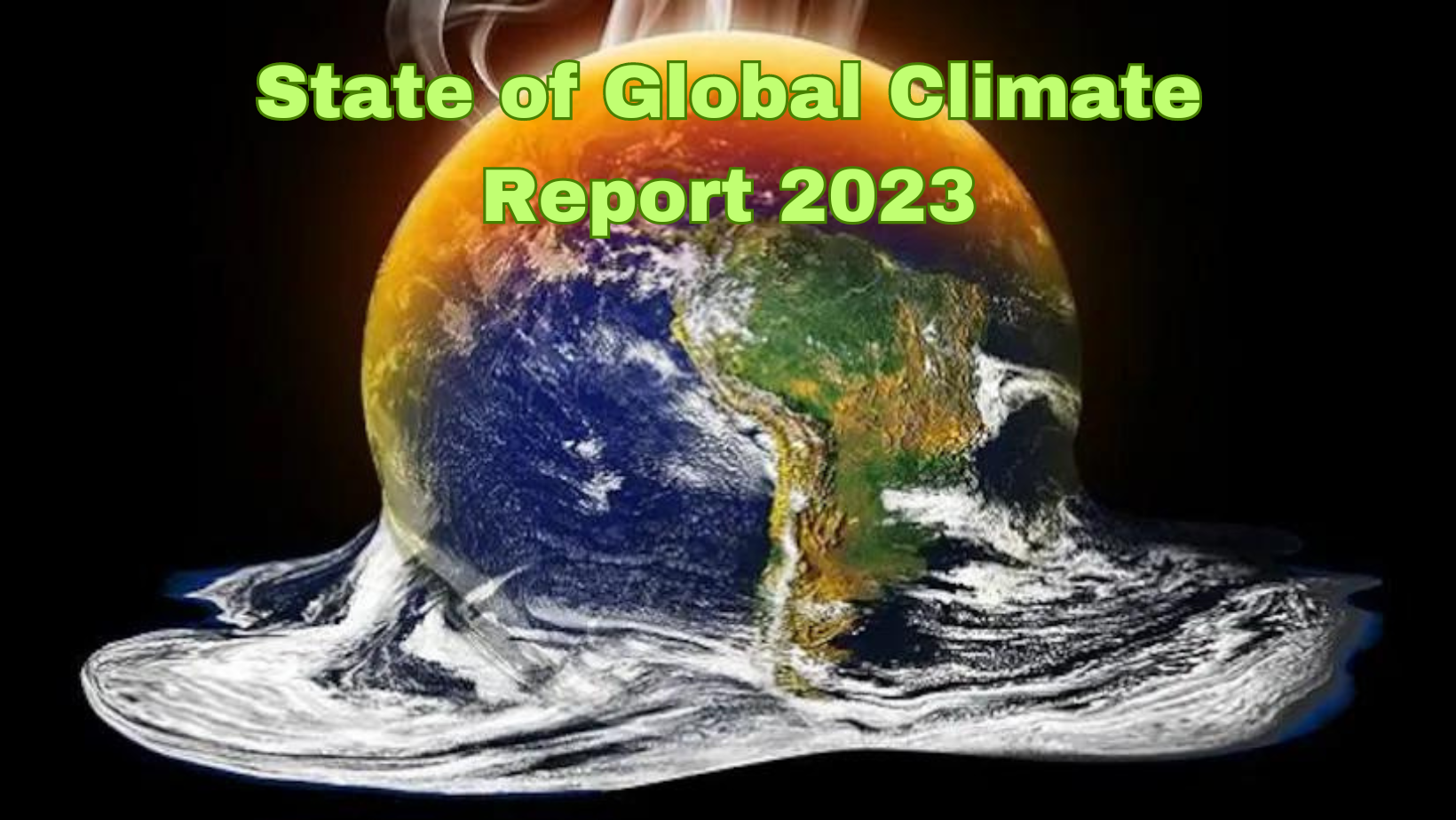State of Global Climate Report 2023

- 20 Mar 2024
Why is it in the News?
In line with a host of observations by climate agencies in the preceding three months, the World Meteorological Organisation (WMO) has officially confirmed 2023 to be the hottest year on record.
About the State of Global Climate Report 2023:
- Published annually by the World Meteorological Organization (WMO), the State of Global Climate Report provides a detailed analysis of the Earth's climate system.
- Contributors to the report include various UN organizations, National Meteorological and Hydrological Services, Global Data and Analysis Centers, Regional Climate Centres, the World Climate Research Programme (WCRP), and more.
Highlights of the 2023 Report:
- Record-Breaking Global Temperatures: 2023 was the hottest year on record, with a global average near-surface temperature of 1.45°Celsius (±0.12°C) above the pre-industrial baseline.
- The past ten years were also the warmest decade recorded.
- Extensive Marine Heatwaves: Nearly one-third of the global ocean experienced a marine heatwave on an average day in 2023.
- Over 90% of the ocean had faced heatwave conditions at some point during the year, negatively impacting ecosystems and food systems.
- Unprecedented Glacier Ice Loss: Preliminary data reveals the largest loss of ice since 1950 for the global set of reference glaciers, driven by extreme melt in western North America and Europe.
- Surge in Renewable Energy Capacity: Renewable capacity additions in 2023 increased by almost 50% from 2022, totaling 510 gigawatts (GW) and marking the highest rate in the past two decades.
- These findings emphasize the pressing need to address climate change through effective international cooperation, policymaking, and sustainable practices.
About the World Meteorological Organisation (WMO):
- The World Meteorological Organization (WMO) is a specialized agency of the United Nations that fosters international cooperation in atmospheric science, climatology, hydrology, and geophysics.
- Founded in 1950, WMO originated from the International Meteorological Organization established in 1873 to facilitate the exchange of weather data and research.
- Today, WMO comprises 193 member countries and territories and promotes the free exchange of meteorological and hydrological data, information, and research.
- By collaborating with various partners, WMO contributes to environmental protection, climate change mitigation, and sustainable development efforts worldwide.
- Headquarters: Geneva, Switzerland.
